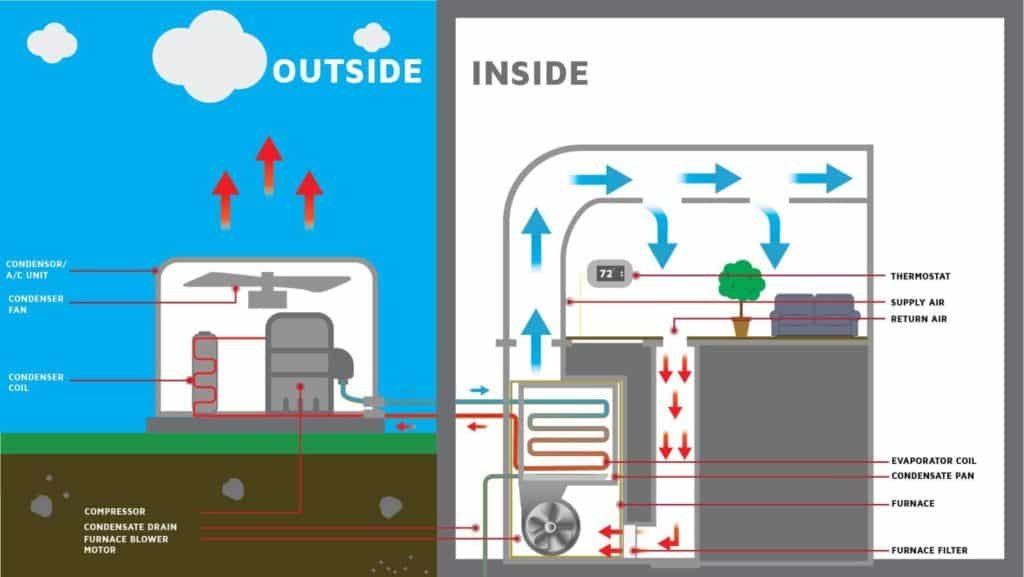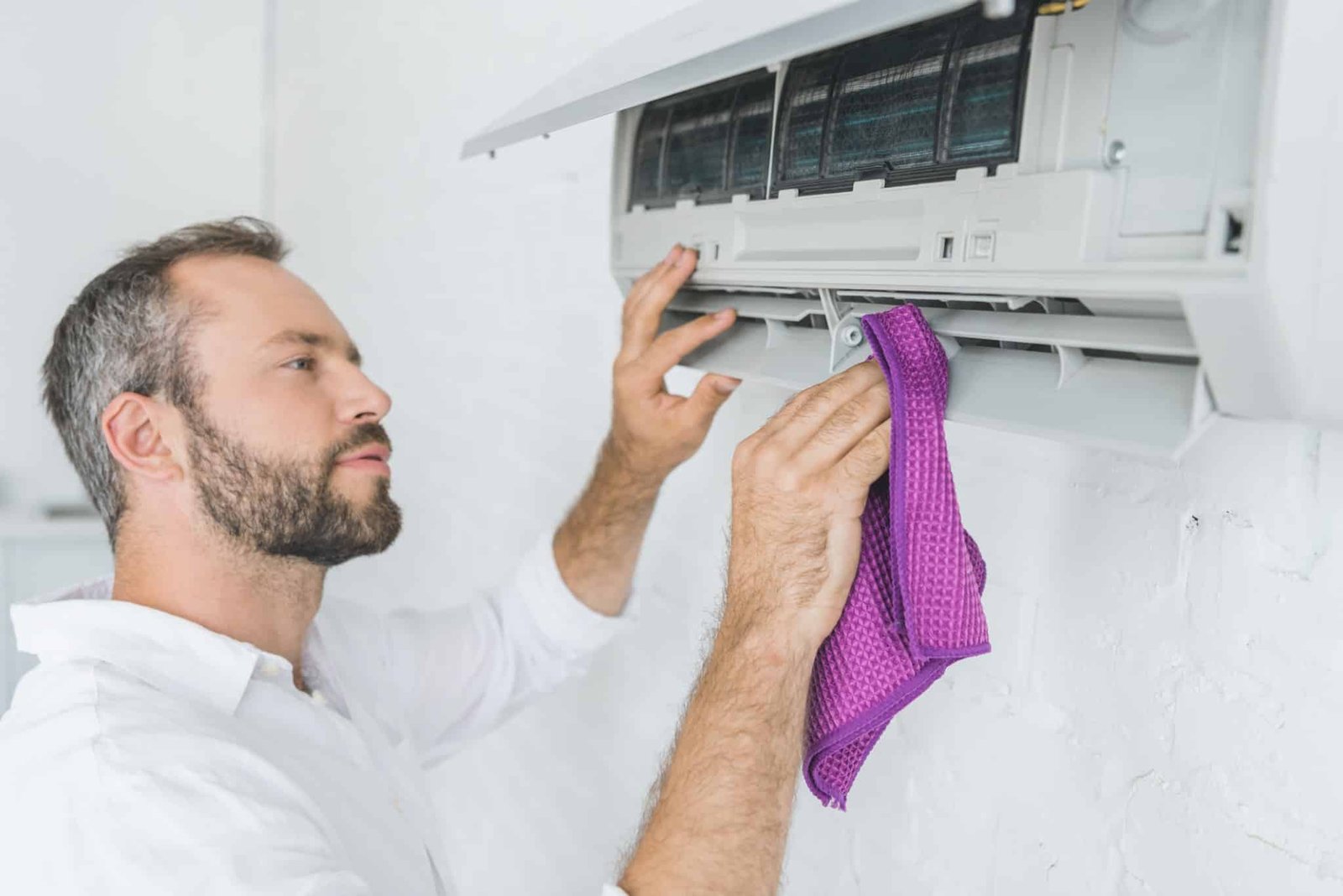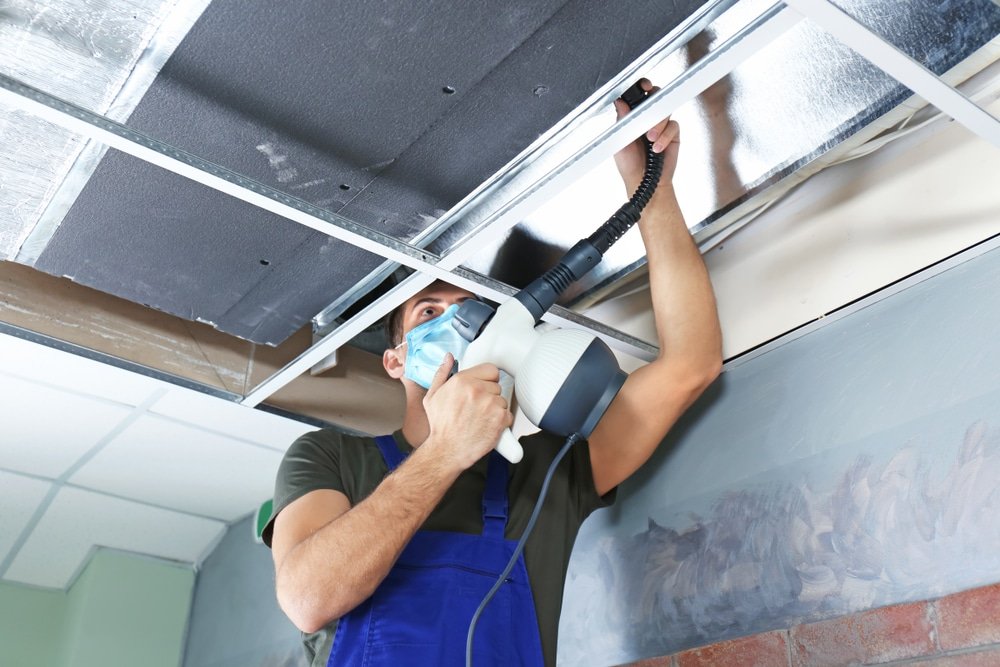As the temperatures soar, your air conditioner becomes an invaluable asset to maintain a cool and comfortable indoor environment. However, the efficiency and lifespan of your air conditioning unit heavily depend on proper maintenance. In this comprehensive guide, we’ll delve into the workings of air conditioner maintenance, the ideal times to perform it, effective cleaning methods, legal obligations, and additional tips to maximize the value of your cooling system.
Understanding Air Conditioning Maintenance
How It Works

Air conditioner maintenance is a systematic process that involves inspecting, cleaning, and fine-tuning various components to ensure optimal performance. Regular maintenance helps prevent breakdowns, reduces energy consumption, and prolongs the life of your cooling system.
During a maintenance service, a certified technician will typically:
Inspect Refrigerant Levels: Adequate refrigerant levels are crucial for efficient cooling. Technicians will check for any leaks and recharge the system if necessary.
Clean or Replace Air Filters: Dirty filters can reduce airflow and strain the system. Regular cleaning or replacement is essential for maintaining air quality and system efficiency.
Examine Thermostat Settings: Ensuring accurate thermostat settings helps in maintaining a comfortable temperature while optimizing energy use.
Check Electrical Components: Faulty electrical connections can be hazardous. Technicians inspect and tighten connections to ensure safe and efficient operation.
Inspect and Lubricate Moving Parts: Well-lubricated components reduce friction, leading to improved efficiency and reduced energy consumption.
Inspect the Condensate Drain: A clogged drain can lead to water damage. Technicians clear any blockages to prevent potential issues.
Evaluate the Overall System Performance: A comprehensive assessment of the entire system identifies potential issues before they escalate.
When to Perform Air Conditioner Maintenance
Timing is crucial when it comes to air conditioner maintenance. Ideally, it’s recommended to schedule maintenance twice a year: once in the spring before the cooling season starts and once in the fall before the heating season. This ensures that your system is in top condition when you need it the most.
Additionally, if you observe any of the following signs, it’s advisable to schedule maintenance promptly:
Inadequate Cooling: If your air conditioner is not cooling as effectively as it used to, it might be time for a checkup.
Unusual Noises: Strange sounds like squealing, banging, or grinding could indicate potential issues that need attention.
Frequent Cycles: If your unit is turning on and off frequently, it might be struggling to maintain the desired temperature.
Increased Energy Bills: A sudden spike in energy bills without a corresponding change in usage could signal inefficiencies in your cooling system.
DIY Air Conditioner Cleaning Tips

While professional maintenance is essential, there are several steps homeowners can take to keep their air conditioners running smoothly between professional visits. Let’s explore how to clean your air conditioner effectively:
Clean or Replace Air Filters: This is a simple yet crucial task. Clean or replace your filters every 1-3 months, or as recommended by the manufacturer.
Wash the Evaporator Coils: Over time, evaporator coils can accumulate dirt, reducing their ability to absorb heat. Use a soft brush to gently clean the coils, and consider professional cleaning for thorough maintenance.
Straighten Coil Fins: Bent fins can obstruct airflow. Use a fin comb to straighten them and ensure optimal performance.
Polish the Condensate Drains: Algae and mold can clog the condensate drains. Use a mixture of bleach and water to clear these drains and prevent water damage.
Check the Thermostat: Ensure your thermostat is calibrated correctly. If you have an older thermostat, consider upgrading to a programmable one for better energy efficiency.
Inspect Ductwork: Leaks or blockages in the ductwork can significantly reduce the efficiency of your air conditioner. Inspect for any issues and seal leaks with appropriate materials.
Examine Insulation: Adequate insulation is crucial for maintaining a consistent temperature. Check and replace insulation as needed.
By incorporating these additional DIY cleaning tips into your routine, you can enhance the efficiency of your air conditioner and reduce the frequency of professional maintenance needs.
Legal Obligations and Home Air Conditioner Maintenance
When it comes to home air conditioner maintenance, there are legal obligations that homeowners need to be aware of. These regulations are in place to ensure the safety and well-being of occupants and neighbors. Some common legal considerations include:
Noise Regulations: Air conditioners can generate noise that might disturb neighbors. Familiarize yourself with local noise regulations and ensure your unit complies.
Refrigerant Handling: The handling and disposal of refrigerants are regulated to prevent environmental harm. Always hire certified technicians who follow proper procedures.
Permit Requirements: In some jurisdictions, you may need permits for installing or replacing air conditioning units. Check with local authorities to ensure compliance.
Energy Efficiency Standards: Some areas have energy efficiency standards that your air conditioning unit must meet. Ensure your system adheres to these guidelines.
Additional Tips for Affordable Cooling Solutions
To further optimize your air conditioning system and reduce maintenance costs, consider the following tips:
Install a Programmable Thermostat: This allows you to set specific temperatures for different times of the day, optimizing energy usage.
Seal Air Leaks: Ensure that windows and doors are properly sealed to prevent cool air from escaping and warm air from entering.
Use Fans: Ceiling fans or portable fans can help distribute cool air more efficiently, allowing you to set your thermostat at a slightly higher temperature.
Shade Your Outdoor Unit: Placing your outdoor unit in a shaded area can improve its efficiency by reducing the workload.
Regularly Inspect and Clean Vents: Ensure that air vents are unblocked and clean to maintain optimal airflow.
Additional Tips for Optimal Air Conditioner Maintenance
Condenser Coil Maintenance:
The condenser coil, located in the outdoor unit, is exposed to the elements and can accumulate dirt and debris. Regularly clean the condenser coils using a gentle stream of water to enhance heat exchange efficiency.
Inspect and Upgrade Insulation:
Proper insulation is not limited to the walls of your home. Ensure that your air ducts are well-insulated to prevent energy loss and maintain the desired temperature more effectively.
Monitor Refrigerant Levels:
While certified technicians typically handle refrigerant levels during maintenance, it’s good practice to be aware of any sudden changes in cooling efficiency. If you notice a decline, consult a professional for a thorough inspection.
Invest in Smart Thermostats:
Upgrade your thermostat to a smart, programmable one. These devices can learn your habits, allowing for automatic adjustments that optimize energy usage and increase overall efficiency.
Consider a Zoning System:
If possible, implement a zoning system that allows you to control the temperature in different areas of your home independently. This can lead to significant energy savings, especially in larger homes.
Professional Air Duct Cleaning:

Over time, dust, mold, and debris can accumulate in your air ducts, hindering airflow and reducing indoor air quality. Schedule periodic professional air duct cleaning to maintain optimal system performance.
Regularly Check for Refrigerant Leaks:
Refrigerant leaks can compromise the efficiency of your air conditioning system. Keep an eye out for any signs of leaks, such as hissing sounds or reduced cooling performance, and address them promptly.
Upgrade to Energy-Efficient Models:
If your air conditioner is reaching the end of its lifespan, consider investing in a more energy-efficient model. Newer systems often come with advanced features that can significantly reduce energy consumption.
Optimize Fan Settings:
Understand the fan settings on your air conditioner. During the cooling season, set the fan to “auto” to minimize energy consumption. In contrast, during the heating season, setting it to “on” can help distribute warm air more effectively.
Schedule Professional Inspections Annually:
In addition to regular maintenance, consider scheduling professional inspections at least once a year. Professional technicians can identify potential issues early on, preventing major breakdowns and extending the life of your system.
By incorporating these additional tips into your air conditioner maintenance routine, you not only ensure the longevity of your cooling system but also contribute to a more energy-efficient and cost-effective home cooling experience. Remember, a well-maintained air conditioner not only keeps you cool but also keeps your energy bills in check.
Conclusion
In conclusion, prioritizing air conditioner maintenance not only unlocks affordable cooling solutions but also ensures the longevity and efficiency of your cooling system. By understanding how air conditioning maintenance works, recognizing the ideal times to perform it, implementing effective DIY cleaning tips, being aware of legal obligations, and incorporating additional tips for affordable cooling, you can enjoy a cool and comfortable living space while keeping maintenance costs in check. Remember, a well-maintained air conditioner is not just an investment in comfort; it’s an investment in the longevity of your cooling system.
Read more article! visit here

